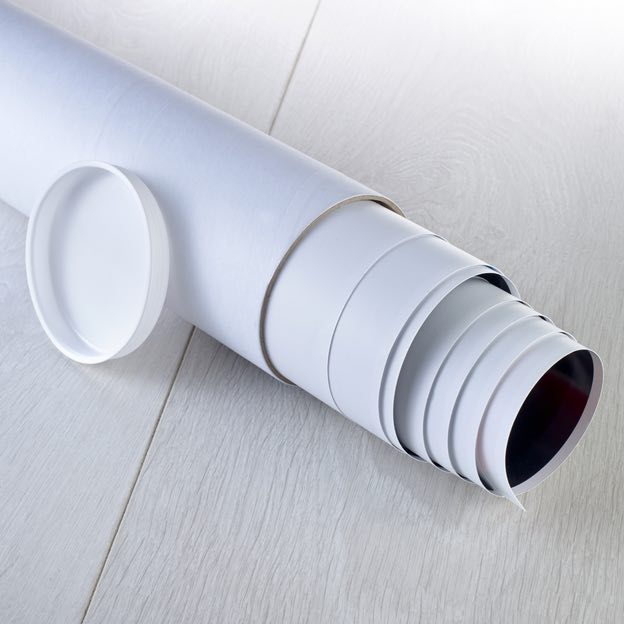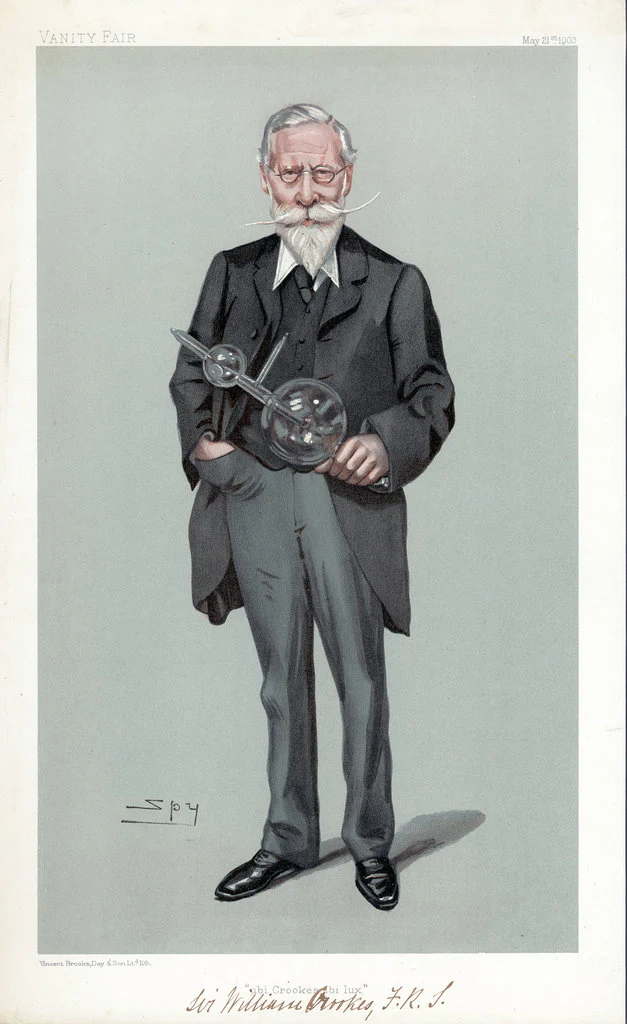William Crookes, British physicist and chemist, 1903
Image information
Sizing information
| Overall size (inc frame) | 20 x 30cm (7.9 x 11.8in) |
| Depth | 0cm (0in) |
| Artwork | 16.65 x 27.2cm (6.6 x 10.7in) |
| Border (mount) |
1.4cm
top/bottom
(0.6in)
1.68cm left/right (0.7in) |
| The paper size of our wall art shipped from the US is sized to the nearest inch. | |

Our prints
We use a 200gsm fine art paper and premium branded inks to create the perfect reproduction.
Our expertise and use of high-quality materials means that our print colours are independently verified to last between 100 and 200 years.
Read more about our fine art prints.
Manufactured in the UK, the US and the EU
All products are created to order in our print factories around the globe, and we are the trusted printing partner of many high profile and respected art galleries and museums.
We are proud to have produced over 1 million prints for hundreds of thousands of customers.
Delivery & returns
We print everything to order so delivery times may vary but all unframed prints are despatched within 1–3 days.
Delivery to the UK, EU & US is free when you spend £75. Otherwise, delivery to the UK costs £5 for an unframed print of any size.
We will happily replace your order if everything isn’t 100% perfect.
Product images of William Crookes, British physicist and chemist, 1903


Product details William Crookes, British physicist and chemist, 1903
William Crookes, British physicist and chemist, 1903
William Crookes, British physicist and chemist, 1903. Crookes (1832-1919) holding the discharge tube which carries his name. After studying at the Royal College of Chemistry, London, Crookes went on to make significant contributions in several fields of science. He invented the radiometer (1873-1876), a device that responds to light or other electromagnetic radiation (which led to research in vacuum physics), and the spinthariscope (1903) which made individual alpha particles visible. He also discovered the element thallium, and was an authority on sanitation and agriculture. Cartoon from Vanity Fair, London, May 1903.
- Image ref: 1157200
- Oxford Science Archive / Heritage Images
Find related images
 zoom
zoom



























